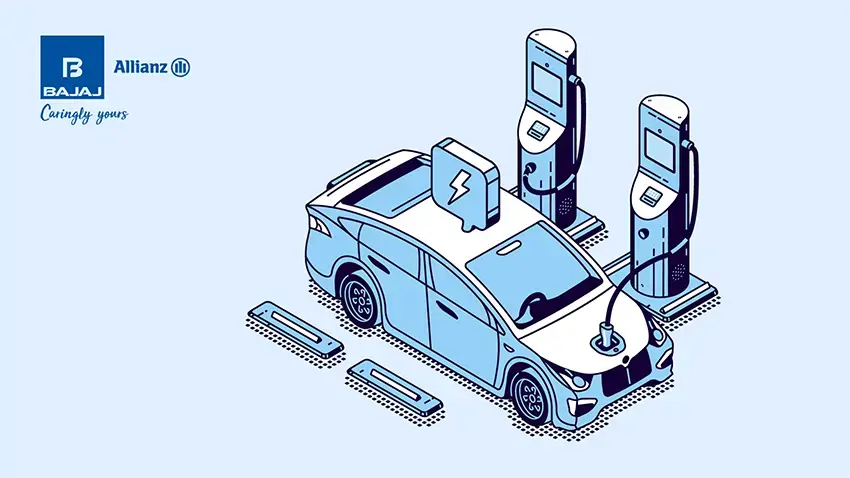Global temperatures are rising each year. The shift in the weather patterns, melting ice caps, and rising sea temperatures are some of the signs of the impact caused by climate change. Factors such as a rise in the population, aggressive deforestation, an increase in the number of vehicles, and industries causing more pollution are responsible for this. There have been attempts to bring radical changes to reduce pollution and temperature.
While it might take some time to implement these changes, one initiative at present can help the environment – switching from fossil fuel cars to electric vehicles. This change can have a huge impact on overall pollution levels. However, in a country like India, the cost of electric vehicles can discourage people. There is another option, however, if you wish to own an electric car. You can convert your petrol car to electric. If you wish to do so, here are some of the things you should keep in mind before doing so.
What are electric cars?
As the name suggests, electric cars are cars that are powered by electric current. Conventional cars are powered by fossil fuels such as petrol and diesel which power the internal combustion engine to drive the car. On the other hand, EVs are powered by batteries that store energy in the form of electricity. This negates the need for petrol or diesel to power the car.
Types of electric vehicles
The following are the types of electric vehicles:
1. Battery Electric Vehicle (BEV)
This type of
EV runs only on the battery and the motor. The battery is powered by either alternating current or direct current depending on the model. Due to the absence of fossil fuel, these cars have zero emissions. The charging time and the range provided differ among manufacturers.
2. Hybrid Electric Vehicle (HEV)
These cars run on both fuel and battery power. However, the electric current required to power the car is generated by the braking system of the vehicle, known as regenerative braking. The heat produced during braking gets converted into electrical energy, which is stored and used to power the car. The car switches to fuel once the battery power drains.
3. Plug-in Hybrid Electric Vehicle (PHEV)
This type of car is similar to the hybrid one, the only difference being that batteries get charged through both braking and external charging.
How to convert petrol cars to electric?
With the government making changes in the Motor Vehicles Act with keeping the rising vehicular pollution in mind, they allow you to convert your petrol car to electric. It is also possible to
convert your diesel car to electric. There are authorised dealers where you can take your car and get it retrofitted with the same mechanism as that of an electric car.
Should you convert your car to electric?
While it is a good initiative taken up by the government towards tackling vehicular pollution, there is still the cost factor which you need to consider. Depending on the type of car you own, the cost of the kit can vary. This also depends on where you are getting it fitted from. However, the cost of the battery cannot be overlooked. The cost is dependent on the capacity and range of the battery. Longer the range, the costlier the battery. The maintenance cost also needs to be considered before converting your car to electric.
Does car insurance cover electric cars?
Car insurance companies have started to provide insurance policies for electrical vehicle owners. This is mainly due to the sudden rise in the number of electric cars on the road. The coverage provided to an electric car is similar to the one provided to a conventional car. However, keep in mind that the
car insurance prices for electric cars can be different from conventional fuel-operated cars due to the cost of the car and its mechanism. *
Conversion to electric car: Is it worth it?
While it is a positive initiative taken up by the government to tackle pollution, there is still its cost that you must consider. Depending on the type of car you own, the cost of the kit can vary. This also depends on where you are getting it fitted from.
Moreover, the cost of the battery cannot be overlooked. Its price depends upon the capacity and range of the battery on a single charge. The higher the range, the costlier the battery. The maintenance cost also must be considered before converting your car to an electric one. Since your car will now become electric, you also need to account for the cost of electric car insurance. *
Impact on electric vehicle insurance
Car insurance companies, now, provide insurance policies for electrical vehicles too. The coverage provided for an electric car is similar to the one provided for a conventional fuel-operated car. However, do keep in mind that the price of electric car insurance may be higher due to the cost of the car and its mechanism. *
Conclusion
The information given above can give a hint as to how you can convert your car to electric and things to remember while doing so. You can use the
car insurance calculator to get a quote for your car once it has been converted to electric.
Insurance is the subject matter of solicitation. For more details on benefits, exclusions, limitations, terms, and conditions, please read the sales brochure/policy wording carefully before concluding a sale.
*Standard T&C apply
 Service Chat: +91 75072 45858
Service Chat: +91 75072 45858


